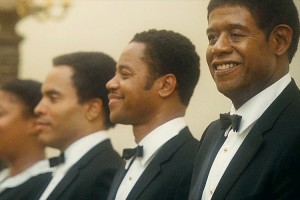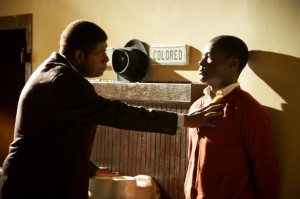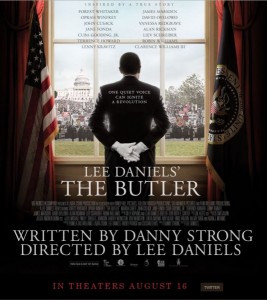Why Conservatives Should Appreciate “Lee Daniels’ The Butler”
Posted on August 19, 2013 at 4:20 pm
I highly recommended my friend Rebecca Cusey’s very thoughtful essay on Patheos, Hey Conservatives, Don’t Blast ‘The Butler’ (From a Conservative). I am strongly opposed to reducing complex human stories to us-vs-them political bullet points (indeed, opposed to us-vs-them political bullet points of any kind). As Cusey points out, this is particularly foolish and inconsistent with “Lee Daniels’ The Butler,” which is inspired by the true story of a man who served as a butler in the White House for eight Presidents, over a period that included the tumult of the Civil Rights Era.
The first reason that conservatives should like this movie is that its main character upholds core conservative principles of self-reliance, honor, hard work, and devotion to family. Of course, these are liberal values as well, but right now we are focusing on the “conservative” criticisms that Cusey rebuts so resoundingly. The movie makes the point that the butler and his son each devote their lives to service, an idea that should be embraced by people of all political views, even Libertarians, who may say they are acting only out of self-interest but who in their own way are trying to make the world more equitable. Cusey writes:
We need more, not less, of this in our culture because exploring the African-American experience through film is exploring our shared history and creates a conversation we all can share.
The conversation will not go very far if we conservatives immediately overreact to perceived slights in an excellent film.
The skill of the screenplay and direction in The Butler make it clear that the political views in the movie flow from and are expressions of the characters in the film. The movie itself does not make judgements on any of the presidents, but some of its characters sure do. And some of the characters disagree with each other.
That’s called good movie-making.
I think it is a beautiful and moving film for anyone to enjoy. Even whites. Even conservatives. Especially white conservatives. Try to understand the other side a little. Buying a movie ticket isn’t conceding every political point made by a character in the movie. It is simply learning.
Let me repeat that last point for emphasis.
Buying a movie ticket isn’t conceding every political point made by a character in the movie. It is simply learning.
In the first place, this movie in no way attacks conservative principles or those who espouse them. In the second place, even if it does, the way to respond is with empathy and respectful engagement. I found the movie’s portrayal of the Reagans to be very sympathetic. Some of the critics (not professional movie critics, just people who have expressed views about the movie) wanted it to be more laudatory. But Reagan, as all of the Presidents portrayed, was a complex figure who was not always willing to take on issues that in retrospect we might have wished him to, and apartheid was one of them. That is a historical fact. So were lynchings, which were frequent in the early 20th century and even proudly featured on postcard souvenirs. Thoughtful, sincere films like this one are intended to start conversations about ideas and experiences.
Cusey concludes her essay with a thought I wish everyone shared:
I maintain that every conservative should see this movie. Sure, there are things about which I disagree, but so what? It is excellent and we just might find we understand each other a bit better afterwards.



